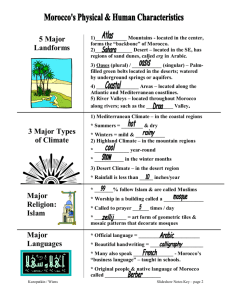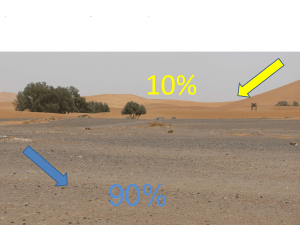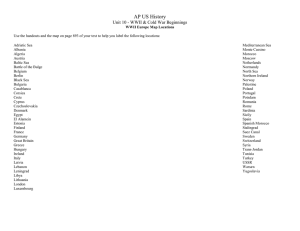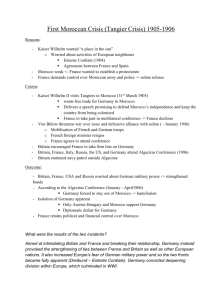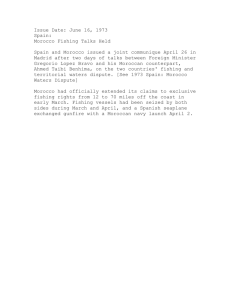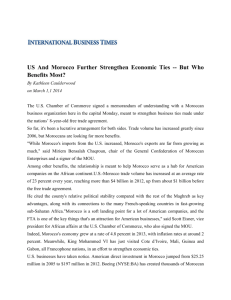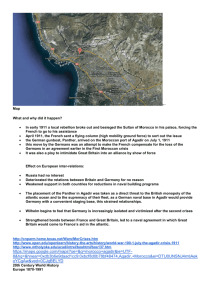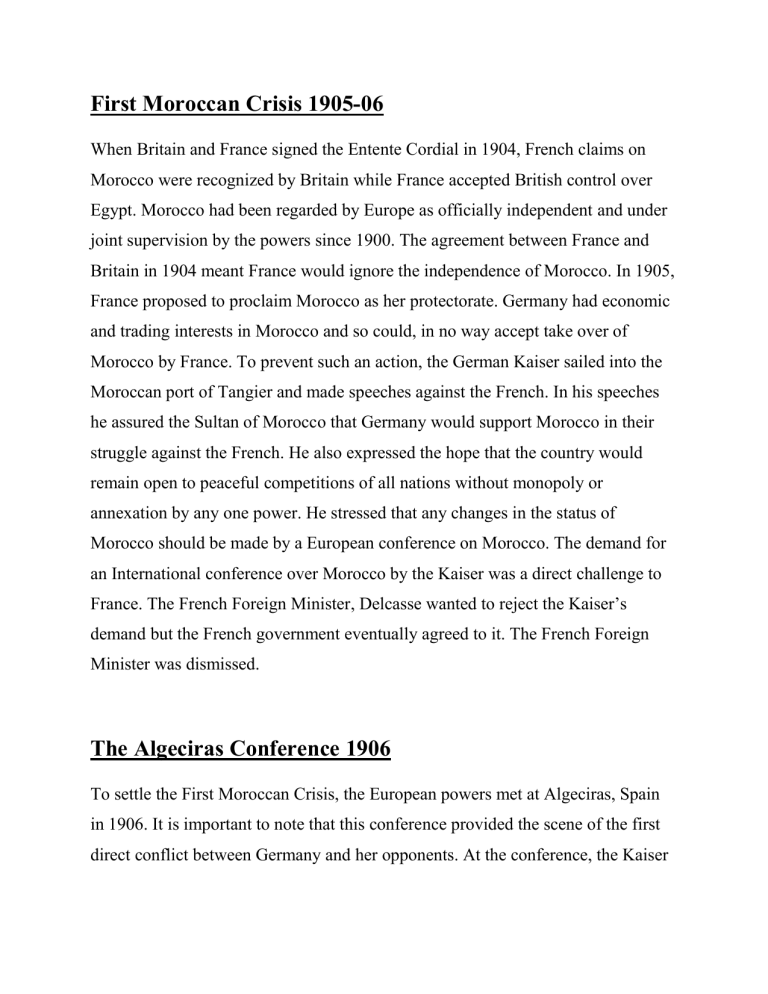
First Moroccan Crisis 1905-06 When Britain and France signed the Entente Cordial in 1904, French claims on Morocco were recognized by Britain while France accepted British control over Egypt. Morocco had been regarded by Europe as officially independent and under joint supervision by the powers since 1900. The agreement between France and Britain in 1904 meant France would ignore the independence of Morocco. In 1905, France proposed to proclaim Morocco as her protectorate. Germany had economic and trading interests in Morocco and so could, in no way accept take over of Morocco by France. To prevent such an action, the German Kaiser sailed into the Moroccan port of Tangier and made speeches against the French. In his speeches he assured the Sultan of Morocco that Germany would support Morocco in their struggle against the French. He also expressed the hope that the country would remain open to peaceful competitions of all nations without monopoly or annexation by any one power. He stressed that any changes in the status of Morocco should be made by a European conference on Morocco. The demand for an International conference over Morocco by the Kaiser was a direct challenge to France. The French Foreign Minister, Delcasse wanted to reject the Kaiser’s demand but the French government eventually agreed to it. The French Foreign Minister was dismissed. The Algeciras Conference 1906 To settle the First Moroccan Crisis, the European powers met at Algeciras, Spain in 1906. It is important to note that this conference provided the scene of the first direct conflict between Germany and her opponents. At the conference, the Kaiser was humiliated. The results of the conference were not quite what the Kaiser had expected. The conference agreed on the following terms: Policing of Morocco should be undertaken by France and Spain. The state bank of Morocco was to be jointly controlled by France, Spain, Britain and Germany. Germany got trading rights in Morocco. The principle of ‘open door’ for all countries was recognized. France was left free to proceed with its peaceful penetration. The independence of the Sultan of Morocco was recognized. While the terms look favorable even to the Germans but the dominance of France in Morocco should be noted. France had already made inroads in Morocco which were left unchecked by the conference. To worsen the situation, the Germans went to the conference thinking that they would dictate the pace but to their surprise and displeasure Spain, Italy, Russia, Great Britain and even the USA all supported French rights in Morocco. Such cooperation by the rest of the powers not only strengthened the Anglo-French Entente but also led to the growth of international tension between The Triple Entente and The Triple Alliance. The Germans left the conference dissatisfied and became convinced that international conferences were useless as a means of settling disputes. However, the Kaiser still kept his eyes on the developments in Morocco. The conference also improved the relationship between Britain and Russia. In August 1907, the two nations signed an agreement that resolved all the outstanding disagreements over rival spheres of influence in Persia. Nonetheless, it is important to show that in a way the international relations were not as bad as implied. This is so because: No military preparations were made by any power. The British public opinion showed a marked lack of concern over Morocco. The subsequent French-Anglo military discussions did not have much impact on threatening world peace. Second Morocan Crisis 1911 (Agadir crisis) In 1911, the Moroccan question once again created a crisis. In 1908, the French secured the election of a new Sultan of Morocco to replace the previous one who was against French policy in Morocco. Three years later, a rising occurred against the new Sultan and order to suppress it, the French forces occupied the Moroccan capital, Fez. Meanwhile, Germany had warned the French government that any such move was not in line with the Algeciras agreement. In actual fact, Germany was not satisfied with the small colonial empire it had so far gained. She was jealous of any other power trying to take control of any of the few remaining areas outside European dominance. The move by France was interpreted by the Germans as a sign that France was about to colonize Morocco. The Kaiser responded by sending a gunboat, ‘Panther’ to Agadir on the pretext of looking after German subjects and property. He threatened the town with heavy guns, demanding compensation for the growth of French influence over Morocco. The British were worried in case the Germans acquired Agadir, which could be used as a naval base from which to threaten Britain’s trade routes. Lloyd George and the British government gave firm support to the French. It was clear that the British were not only supporting its Entente ally but it could not just stand by and be taken advantage of where her interests were seriously affected. For some weeks tension was high and there was the danger of an armed collision. It is believed that preparations for war were both made in both Britain and France. However, in the end Germany gave in and recognized a French protectorate over Morocco. France in turn made a concession of territory to Germany in the French Congo. In return, Germany withdrew the ‘Panther’. It should be noted that the two Moroccan crises seriously shot the peace of Europe. War could have broken out in 1905 and 1911 over Morocco. In 1911 war was avoided because Britain stood firm and showed that she was prepared to fight Germany. Germany was not yet prepared for such a war. The members of the Triple Entente especially France and Britain were now convinced that Germany wanted to dominate the world. As a result of this belief, they decided to cooperate more slowly by adding military conventions to their alliances.
